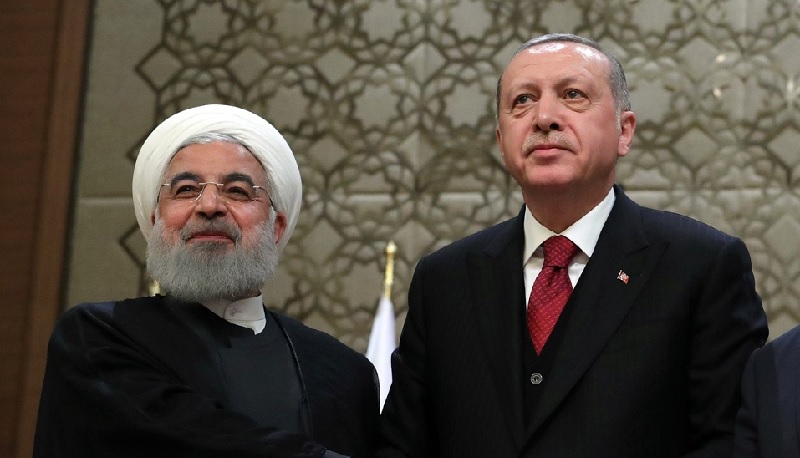US President Donald Trump’s policy of putting economic pressure on Iran to force regime change by inciting a domestic revolt seems to be failing. There is little doubt that renewed sanctions have hurt Iran economically, as witnessed above all by the precipitate fall of the Iranian currency in their wake. However, economic pressure has not led to a revolt against the regime and the currency has stabilised after the initial shock. Indeed, the American action may have consolidated support behind the regime, which can now deflect criticism of its economic performance on to the imposition of American sanctions.
In this context, Iran’s relations with Turkey provide a very interesting case study. Both Tehran and Ankara have regional ambitions that have sometimes led to friction between them, as was the case over Syria until recently. However, economic complementarities and congruence of strategic interests have helped to keep their relationship on a relatively even keel.
When the Trump administration announced that it was going to reimpose sanctions on Iran, Turkey made it clear that it wouldn’t follow American diktats but would comply only with sanctions imposed by the UN. Economic interdependence provides part of the explanation for the Turkish stand. Bilateral trade between Iran and Turkey isn’t limited to oil and gas. The volume of trade between the two neighbours stood at US$11.7 billion at the end of 2017, up from US$9.7 billion in 2016, and both countries have committed to eventually raising the level to US$30 billion.
However, it’s not just oil and trade that determine Turkish–Iranian relations; there’s also a convergence of political objectives. Turkish and Iranian strategic interests coincide on Kurdish secessionism, which threatens the territorial integrity of both countries. That’s why Iran didn’t oppose Turkish incursions into Syria to prevent the creation of a Kurdish enclave abutting its borders, even when the two countries supported opposite sides during the civil war. Now that Turkey is reconciled to Iran’s ally Bashar al-Assad remaining in power in Syria, the major political disagreement between Ankara and Tehran has lost its importance.
Read the article by Mohammed Ayoob on The Strategist.

